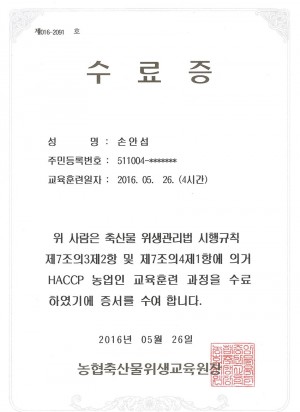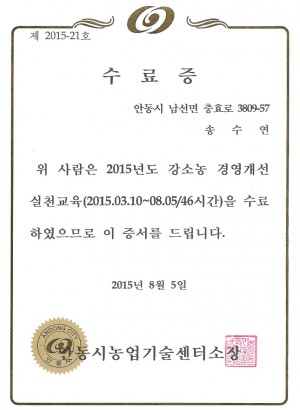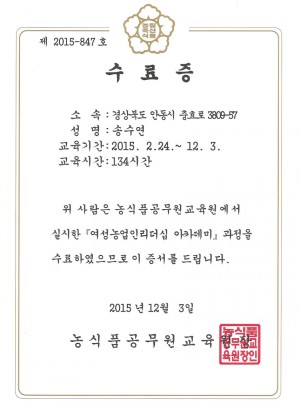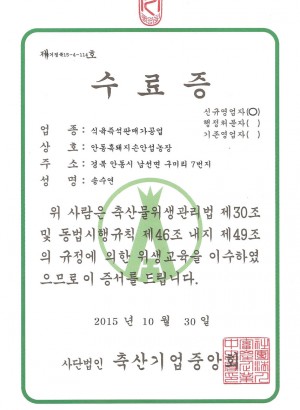[앞다리살]The 10 Worst Private Psychiatry Assessment FAILURES Of All Time Could …
87
2023.03.07 03:17
짧은주소
본문
Psychiatric Assessments and Symptom Scales
Psychiatric tests are essential in the world of health care. They assist the psychiatrist in finding out the health status of the patient. There are a variety of issues that the psychiatrist has to face during a psychiatric assessment. There are fortunately symptom scales that can be used as a supplement.
The fundamentals of a psychiatric assessment
If you suspect that you or someone you know is suffering from mental health issues You can ask for an appointment with a clinician. A psychiatrist can conduct a psychiatric assessment private assessment to determine if the symptoms are genuine and what kind of treatment is suitable for you.
The exam will include a set of questions that help the clinician get an accurate understanding of your condition. The doctor will inquire about your medical history as well as your personal life. They will also inquire about your mental health, behavior and any physical symptoms.
If you're nervous about going through a psychiatric examination be aware that your psychiatrist is there to support you. Be honest and honest. You'll have a better chance to be diagnosed correctly and treated with the appropriate medicines.
To prepare for a psychiatric evaluation take notes of your thoughts and questions to the doctor. They will help you recall your thoughts during the examination. To assist you in the process, bring along a relative or a friend.
A psychiatric assessment is a vital first step towards receiving proper care for your mental health. This will enable your doctor to determine what is the root of the issue, develop a treatment plan and determine whether you're able to accept the treatment.
Your doctor might also recommend tests to rule other diseases such as diabetes or heart disease. They can trigger similar symptoms as mental illness.
Cognitive function tests are one of the tests you may take. These tests assess your ability to solve problems, recognize shapes, and remember short lists. Other tests could include brain scans or drug screens.
A symptom scale that can be used as a supplement to a psychiatric evaluation
Symptom scales can provide useful information in the form of symptoms that are useful in clinical research and practice. While they are able to serve a multitude of applications, it's crucial to assess the validity, sensitivity, and accuracy of the measures chosen.
One measure is the Sleep Assessment Questionnaire (SAQ). This tool will help you track your sleeping habits every day. It's also useful for determining the amount of sleep you receive every night. You can also make use of the Visual Analog Scale for General Health Status to evaluate your health over a 12-month period.
Another self-report measure is the Symptom Checklist 90-Revised (SCL-90-R). Originally a 20-item, three-dimensional rating scale, it has been updated and streamlined to contain just eight items. It is safe and reliable as a result.
The patient can take the most precise and reliable somatic symptom measurement. A good measurement of somatic symptoms should be easy to administer and provide an accurate and precise assessment of the somatic symptoms. It should also be able be used as a measure of outcome that is based on the patient's report.
Many screening tools have been designed to aid doctors and other medical professionals in this field. They're not intended to be stand-alone tools however, they are designed to complement the findings of a medical interview or record review. The symptoms scales can help doctors determine the cause of the impairment and determine whether the patient is suffering from a psychiatric disease.
The SSS-8 can be used, for instance to measure symptoms of somatic burden. The SSS-8 is a reliable, brief self-report measurement that can be administered by the patient. It also has solid evidence of validity and reliability.
The CSQ (comprehensive Stress Questionnaire) can be used to evaluate strategies for coping when you are under pressure. There are six different coping styles reflected in the questionnaire. Each of them is evaluated by an amount. Combining the scores creates an aspect that describes the way of life of a person.
Diagnostic evaluation against. tests for psychiatric illness
When seeking the best treatment for a mental illness, it is important to know the distinctions between a diagnostic evaluation and a psychiatric evaluation. They serve different purposes but they're not the same.
A psychiatric exam is a formal exam and interview that enables a person to diagnose, examine, and manage their mental health. It includes examining the individual's medical background, family history, and symptoms. Based on the symptoms of the patient, psychiatrists might order tests or other assessments such as a brain scan or urine screen.
Diagnostic evaluations are the most frequent type of psychotropic evaluation. It is conducted by psychiatrists who are legally authorized to prescribe of medications. The doctor will analyze the patient's cognitive capacity and also their behavior. The psychiatrist will also go over the patient's previous diagnostic tests and medication. They can also talk to relatives or other people in the person's life.
The psychiatric evaluation is a more thorough assessment. In addition to the mental and physical aspects, the evaluation also examines the individual's social genetic, environmental, Psychiatric assessment Private and genetic factors.
A psychiatric assessment can be conducted in an outpatient or hospital setting. Depending on the level of the diagnosis, the exam can last for up to 90 minutes.
Patients should be prepared to be asked a lot of questions during a psychiatric evaluation. It is important to answer questions in a professional manner. These answers will be used by psychiatrists to create an extensive behavioral history and determine whether a treatment plan is needed.
A psychiatric assessment can be helpful for treating diverse disorders. It can aid in identifying early signs and symptoms in children with mental disorders. A psychiatric assessment could be required when a mental health issue persists. This can help to prevent a more serious issue from becoming a problem.
private psychological assessment assessments can pose challenges for psychiatrists
There are numerous issues the psychiatrist has to consider during a psychiatric assessment. This includes communicating clearly, maintaining a cool head and asking only one question at a given time. Additionally, a thorough analysis of the patient's biopsychosocial background can be helpful for an overall plan of care.
Numerous assessment tools that are standardized are available for the psychiatric evaluation of patients. These tools include questionnaires, interviews, and clinical trials. Some of them are disorder-specific. They can help to identify and treat problems.
The issue is, however how these tools can accurately evaluate all psychiatric symptoms. Inconsistent assessments can lead poor diagnosis, treatment choices, and even patient outcomes.
Primary health care personnel and mental health professionals with training can utilize standardized screening questionnaires. These can be used to test for common psychopathologies within primary care. For instance, the PHQ-9 is a 9-item survey for depression and anxiety. The GAD-7 is a questionnaire with seven items for anxiety.
During the psychiatric exam the questions asked to the patient should focus on the psychosocial, behavioral and medical aspects of the issue. They should also take into consideration the causes of the psychiatric problem and exclude the possibility of external factors.
Although many disorders have similar symptoms However, their distributions may not always the same. Certain disorders have spectra that differ from one another. Some of these differences could be due to differences in the way these disorders are viewed.
Mental disorders can have profound impacts on a person's personal and social performance. Their onset often is caused by social and environmental factors. External factors, such as alcohol use, can pose immediate dangers to a person's health and welfare.
Referrals are not accepted without a psychiatric assessment
It is not an easy task to turn down patients admission to be admitted to a ward in a mental hospital. A comprehensive list of concerns should be posed to the front desk personnel. This is a good thing given that a large proportion of patients do not know they're being sent to an institution. This also means that the odds are against them. A well executed referral system could turn these odds into an effective strategy. The same can be said for the medical staff at a hospital. There are some more intelligent people who can identify an unprofessional doctor from an inch away. No matter how you conduct yourself A robust referral and referral management system is essential for every hospital. CAMHS is no different.
Psychiatric tests are essential in the world of health care. They assist the psychiatrist in finding out the health status of the patient. There are a variety of issues that the psychiatrist has to face during a psychiatric assessment. There are fortunately symptom scales that can be used as a supplement.
The fundamentals of a psychiatric assessment
If you suspect that you or someone you know is suffering from mental health issues You can ask for an appointment with a clinician. A psychiatrist can conduct a psychiatric assessment private assessment to determine if the symptoms are genuine and what kind of treatment is suitable for you.
The exam will include a set of questions that help the clinician get an accurate understanding of your condition. The doctor will inquire about your medical history as well as your personal life. They will also inquire about your mental health, behavior and any physical symptoms.
If you're nervous about going through a psychiatric examination be aware that your psychiatrist is there to support you. Be honest and honest. You'll have a better chance to be diagnosed correctly and treated with the appropriate medicines.
To prepare for a psychiatric evaluation take notes of your thoughts and questions to the doctor. They will help you recall your thoughts during the examination. To assist you in the process, bring along a relative or a friend.
A psychiatric assessment is a vital first step towards receiving proper care for your mental health. This will enable your doctor to determine what is the root of the issue, develop a treatment plan and determine whether you're able to accept the treatment.
Your doctor might also recommend tests to rule other diseases such as diabetes or heart disease. They can trigger similar symptoms as mental illness.
Cognitive function tests are one of the tests you may take. These tests assess your ability to solve problems, recognize shapes, and remember short lists. Other tests could include brain scans or drug screens.
A symptom scale that can be used as a supplement to a psychiatric evaluation
Symptom scales can provide useful information in the form of symptoms that are useful in clinical research and practice. While they are able to serve a multitude of applications, it's crucial to assess the validity, sensitivity, and accuracy of the measures chosen.
One measure is the Sleep Assessment Questionnaire (SAQ). This tool will help you track your sleeping habits every day. It's also useful for determining the amount of sleep you receive every night. You can also make use of the Visual Analog Scale for General Health Status to evaluate your health over a 12-month period.
Another self-report measure is the Symptom Checklist 90-Revised (SCL-90-R). Originally a 20-item, three-dimensional rating scale, it has been updated and streamlined to contain just eight items. It is safe and reliable as a result.
The patient can take the most precise and reliable somatic symptom measurement. A good measurement of somatic symptoms should be easy to administer and provide an accurate and precise assessment of the somatic symptoms. It should also be able be used as a measure of outcome that is based on the patient's report.
Many screening tools have been designed to aid doctors and other medical professionals in this field. They're not intended to be stand-alone tools however, they are designed to complement the findings of a medical interview or record review. The symptoms scales can help doctors determine the cause of the impairment and determine whether the patient is suffering from a psychiatric disease.
The SSS-8 can be used, for instance to measure symptoms of somatic burden. The SSS-8 is a reliable, brief self-report measurement that can be administered by the patient. It also has solid evidence of validity and reliability.
The CSQ (comprehensive Stress Questionnaire) can be used to evaluate strategies for coping when you are under pressure. There are six different coping styles reflected in the questionnaire. Each of them is evaluated by an amount. Combining the scores creates an aspect that describes the way of life of a person.
Diagnostic evaluation against. tests for psychiatric illness
When seeking the best treatment for a mental illness, it is important to know the distinctions between a diagnostic evaluation and a psychiatric evaluation. They serve different purposes but they're not the same.
A psychiatric exam is a formal exam and interview that enables a person to diagnose, examine, and manage their mental health. It includes examining the individual's medical background, family history, and symptoms. Based on the symptoms of the patient, psychiatrists might order tests or other assessments such as a brain scan or urine screen.
Diagnostic evaluations are the most frequent type of psychotropic evaluation. It is conducted by psychiatrists who are legally authorized to prescribe of medications. The doctor will analyze the patient's cognitive capacity and also their behavior. The psychiatrist will also go over the patient's previous diagnostic tests and medication. They can also talk to relatives or other people in the person's life.
The psychiatric evaluation is a more thorough assessment. In addition to the mental and physical aspects, the evaluation also examines the individual's social genetic, environmental, Psychiatric assessment Private and genetic factors.
A psychiatric assessment can be conducted in an outpatient or hospital setting. Depending on the level of the diagnosis, the exam can last for up to 90 minutes.
Patients should be prepared to be asked a lot of questions during a psychiatric evaluation. It is important to answer questions in a professional manner. These answers will be used by psychiatrists to create an extensive behavioral history and determine whether a treatment plan is needed.
A psychiatric assessment can be helpful for treating diverse disorders. It can aid in identifying early signs and symptoms in children with mental disorders. A psychiatric assessment could be required when a mental health issue persists. This can help to prevent a more serious issue from becoming a problem.
private psychological assessment assessments can pose challenges for psychiatrists
There are numerous issues the psychiatrist has to consider during a psychiatric assessment. This includes communicating clearly, maintaining a cool head and asking only one question at a given time. Additionally, a thorough analysis of the patient's biopsychosocial background can be helpful for an overall plan of care.
Numerous assessment tools that are standardized are available for the psychiatric evaluation of patients. These tools include questionnaires, interviews, and clinical trials. Some of them are disorder-specific. They can help to identify and treat problems.
The issue is, however how these tools can accurately evaluate all psychiatric symptoms. Inconsistent assessments can lead poor diagnosis, treatment choices, and even patient outcomes.
Primary health care personnel and mental health professionals with training can utilize standardized screening questionnaires. These can be used to test for common psychopathologies within primary care. For instance, the PHQ-9 is a 9-item survey for depression and anxiety. The GAD-7 is a questionnaire with seven items for anxiety.
During the psychiatric exam the questions asked to the patient should focus on the psychosocial, behavioral and medical aspects of the issue. They should also take into consideration the causes of the psychiatric problem and exclude the possibility of external factors.
Although many disorders have similar symptoms However, their distributions may not always the same. Certain disorders have spectra that differ from one another. Some of these differences could be due to differences in the way these disorders are viewed.
Mental disorders can have profound impacts on a person's personal and social performance. Their onset often is caused by social and environmental factors. External factors, such as alcohol use, can pose immediate dangers to a person's health and welfare.
Referrals are not accepted without a psychiatric assessment
It is not an easy task to turn down patients admission to be admitted to a ward in a mental hospital. A comprehensive list of concerns should be posed to the front desk personnel. This is a good thing given that a large proportion of patients do not know they're being sent to an institution. This also means that the odds are against them. A well executed referral system could turn these odds into an effective strategy. The same can be said for the medical staff at a hospital. There are some more intelligent people who can identify an unprofessional doctor from an inch away. No matter how you conduct yourself A robust referral and referral management system is essential for every hospital. CAMHS is no different.















댓글목록
등록된 댓글이 없습니다.